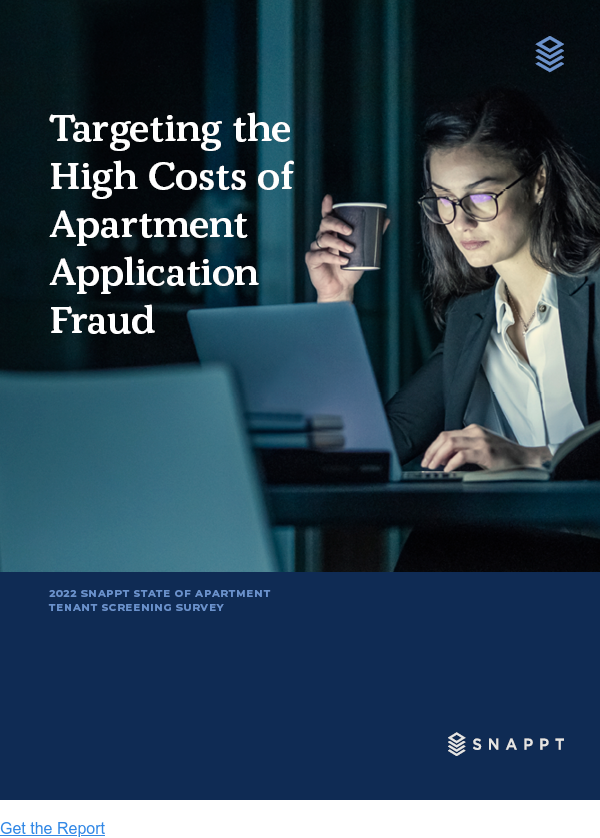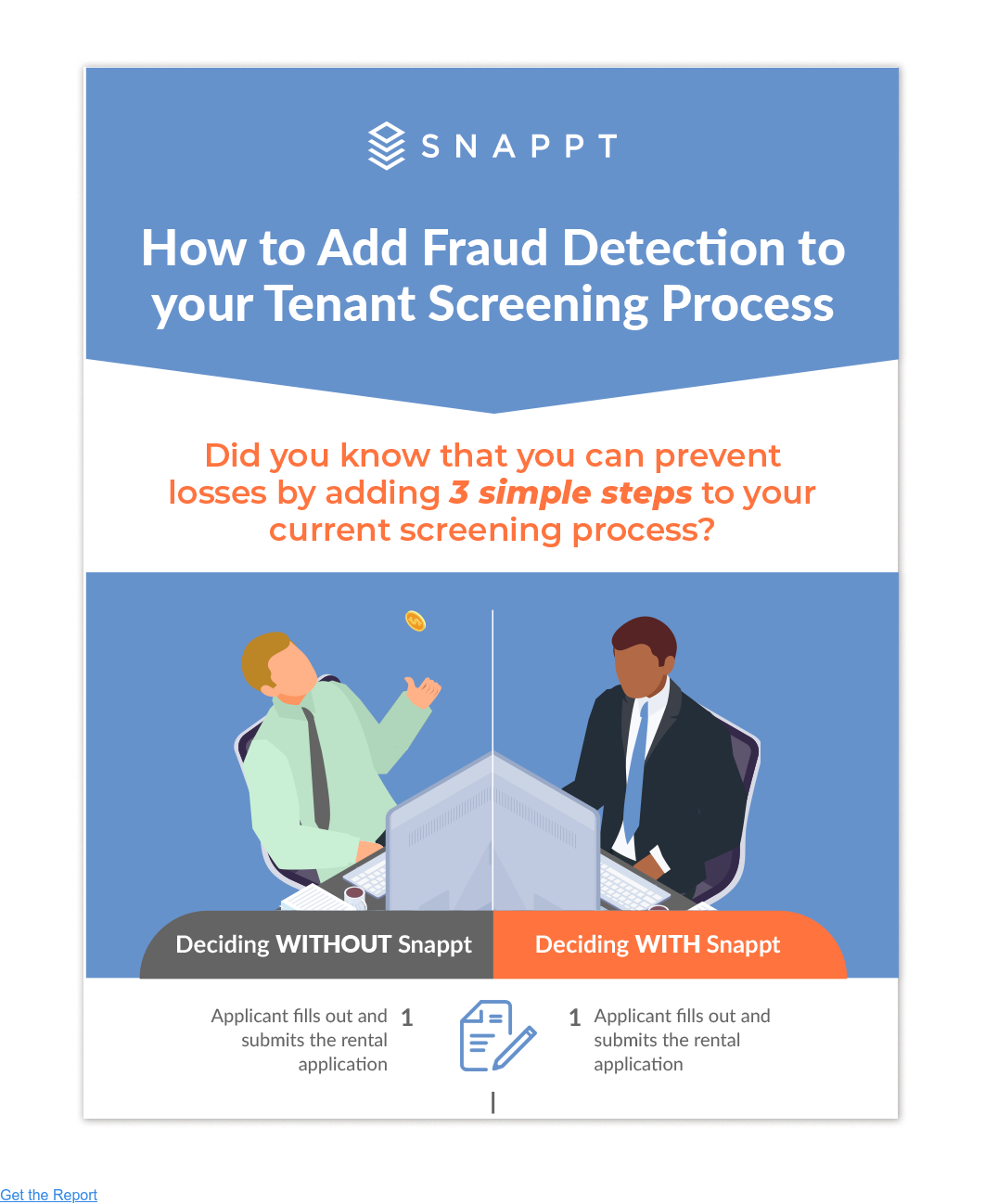The demands of digital transformation have impacted our lives and our businesses in many ways. For the residential rental industry, it means more applications are processed online. An improvement from an efficiency standpoint, however, as the credit industry is already too aware, online applications' anonymity opens up the floodgates for fraud.
The reality is that some apartment prospects will never pass a background check or the employment or income requirements you have diligently defined, but that doesn't mean they will stop trying. As a result, the multifamily industry is now at a higher risk, and not just financially. These risks are negatively impacting communities in many ways.
Residential application fraud opens the door to trouble
These fraud cases are primarily about faking the identity of the prospective tenant. They use someone else's driver's license, social security number or invent a new identity entirely known as synthetic fraud. Synthetic fraud involves combining stolen information and building a credit profile for a person who doesn't exist. They then use that profile to open credit cards and to buy merchandise. The rental home becomes part of the crime, validating this fictitious persona. They'll eventually use it as a drop zone for all of their spending, then skip out in the middle of the night.
Typically, these residents will become a skip or eviction within the first year of residency and will impact the community financially. Because the resident applied using a synthetic ID, there are no repercussions for failing to pay on time or having large rental balances reported to a credit agency.
Additionally, those engaged in criminal activity are, unsurprisingly, more likely to be bad residents. If they'll defraud an apartment community, what will prevent them from doing the same to fellow residents? In extreme cases, the safety of residents might be at risk. After all, there is a reason that these individuals cannot qualify for an apartment. If they are operating under an alias, they might believe they are immune to any consequences.
Andrew Schultz of RentPrep confirms, "The most recent fraudulent rental application submitted to our office only contained a few truthful pieces of information, which were the name, the date of birth, and the social security number. The rest of the application was faked."
However, fake or altered Social Security numbers can be tricky for fraud offenders to utilize in the long term. Fake pay stubs are easier to generate online and easier to get away with. Thorough tenant screening may seem like a tedious and even insignificant process but lack of it can adversely affect an apartment community's bottom line.
A primary key for apartment operators is awareness. The more often leasing teams closely scour applications and can diagnose warning signs, the less likely one of these fraudulent applicants will have a home in a well-managed community.
Advances to screening methods, such as Spirited's financial document fraud detection engine, are increasingly in demand as the industry aims to curb this negative trend of application fraud.











